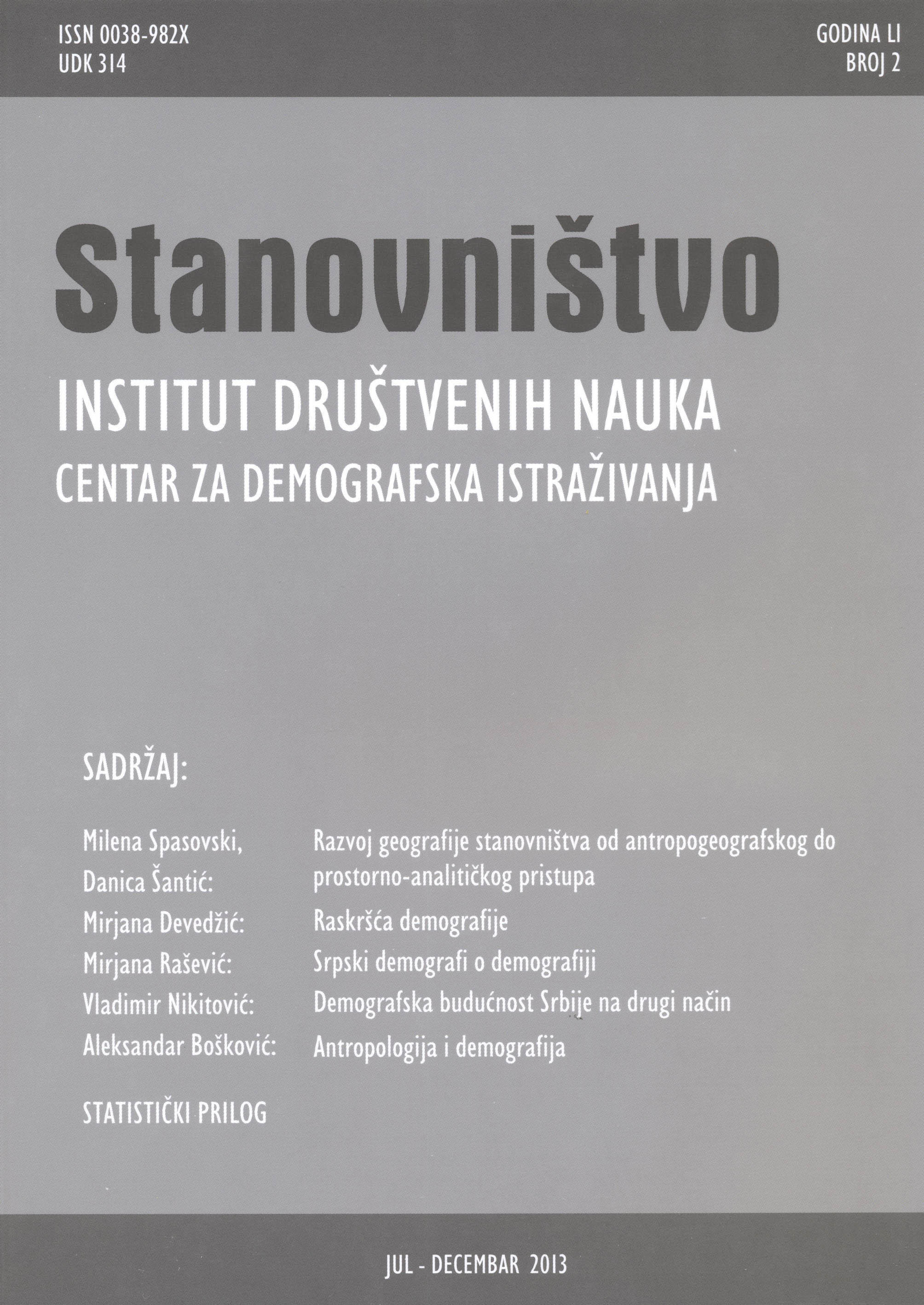Srpski demografi o demografiji
Serbian Demographers on Demography
Author(s): Mirjana M. RaševićSubject(s): History and theory of sociology, Methodology and research technology, Demography and human biology
Published by: Институт друштвених наука
Keywords: demographers; demography; Serbia
Summary/Abstract: Introduction: The objective of this paper is to collect the opinions of the leading demographers in Serbia on four significant matters. The matters are: development, state and future of demography, the successfulness of researchers in this scientific discipline, improvement of the Stanovništvo journal, as well as the population priority of our society and range of population policies. Method: A qualitative interview was chosen as the instrument for data collection. Namely, a structured interview, based on nine questions was sent by e-mail to eleven addresses of relevant demographers in the second half of October 2013. The basic reason for sending questions by e-mail was the aspiration to obtain authentic replies which require time for contemplation. Ten completed questionnaires were returned within two weeks. On the one hand, an integral picture on the chosen themes for research was attempted to be obtained in the analysis of received opinions to certain groups of questions and on the other hand to portray the spectrum of different observations. The responses of our prominent demographers were analyzed and compared to clearly pronounced standpoints of eminent demographers published in world journals on similar themes and with findings of internet researches among members of the International Union for the Scientific Study of Population. Results: The results show that there is a high level of consent among demographers in Serbia regarding the well positioning of demography in relation to other social studies and its good perspectives. The interviewed experts see the future of demography in its integration with a wide circle of sciences, the application of demography and/or greater engagement of researchers in carrying out public policies. However, the estimations of the interviewed demographers as regards the development and state of demography in Serbia are divided. Although a large number of topics had been listed, migrations and population ageing were singled out the most as significant for examining in the immediate future. The inclusion of Stanovništvo on the Science Citation Information Journal List and expanding the circle of authors were the basic recommendations of the respondents regarding better quality of the journal. All interviewed experts mentioned various kinds of knowledge and characteristics necessary for demographers to posses in order to be successful. Contrary to the homogeneous opinion that a demographer should be a superior-researcher, a wide range of responses were given to the question regarding selecting the best indicator for determining the successfulness of researchers in the study of population. As many as eight out of ten interviewed experts believe population ageing is the greatest population challenge which Serbia is facing. However, a low level of consensus appeared among the demographers as regards the range of the political response. Namely, five experts declared they were pessimists in view of the possibilities for mitigating the challenge they singled out. On the contrary, five interviewed experts expressed optimism, as they believe in the economic development of Serbia, the possibilities of institutional adjustments to demographic changes, and/or in man and his rationality. Conclusion: Demographers in Serbia highly appreciate the discipline they belong to. At the same time they are strict critics and have high expectations in all matters dealing with demography.
Journal: Stanovništvo
- Issue Year: 51/2013
- Issue No: 2
- Page Range: 39-51
- Page Count: 13
- Language: Serbian

